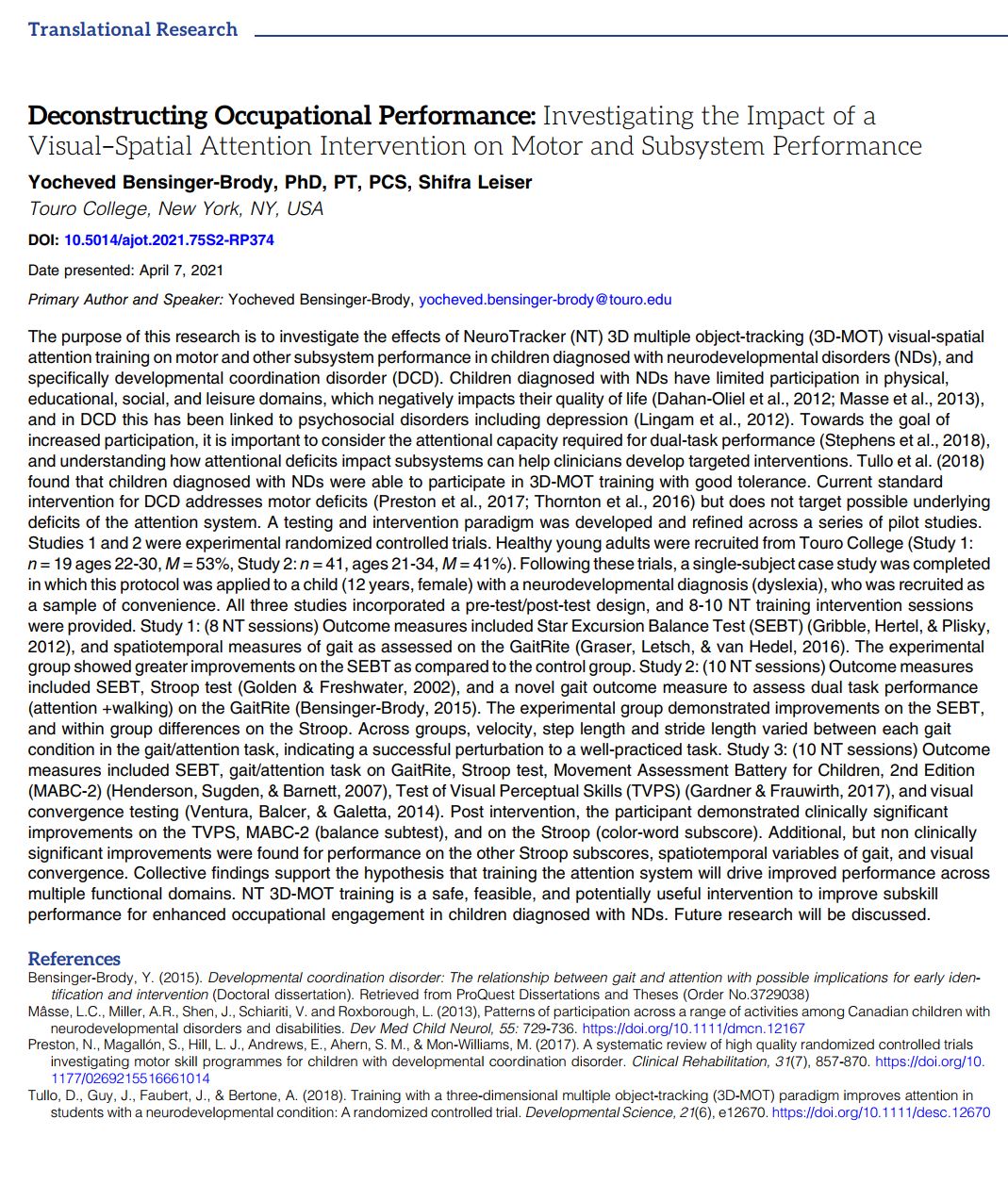Welcome to the Research and Strategy Services at in today's fast-paced.


Over the past two years, Dr. Armando Bertone and I have been collaborating with three schools in Quebec to train attention in students with learning difficulties. Each of these schools provide specialized services to children and adolescents with developmental challenges.
We wanted to see if NeuroTracker could improve attention in these children and adolescents after daily training sessions. NeuroTracker is based off a renowned psychometric tool called multiple object tracking (MOT) that taps into four main properties of attention and isolates them. These include: sustained attention, distributed attention, selective attention and dynamic attention.
Sustained attention is the ability to maintain focus for a period of time. Distributed attention allocates attention to multiple sources. Selective attention involves focusing on important information and ignoring irrelevant information. Finally, dynamic attention refers to concentrating on a continuous flow or movement.
Our team at the Perceptual Neuroscience Laboratory for Autism and Development (PNLab) believed that these four areas of attention are present every day in a classroom. In addition, these four areas are necessary in learning. We wanted to know if training on a task would teach the student to:
We hypothesized that training students on NeuroTracker would result in an improvement on a different validated measure of attention.
A baseline measure of attention was assessed for all participants prior to the start of the training program. The students were then randomly divided into three groups. A third of the students were trained on the multiple object tracking task (the experimental group). One third of students played the popular internet, strategy – math game, called 2048 (placebo group) and the rest of the students received no treatment (control group).
As expected, preliminary results revealed that training on the multiple object tracking (MOT) paradigm over a period of five weeks improved attention. This was measured by the clinically validated attention task. There was no improvement in either of the two groups: placebo group and control group.
Students were enthusiastic about training with NeuroTracker daily. I noticed that the simplicity of the task kept the students on-task at all times. They could not be deterred by any social stimuli or superfluous material that other attention training programs provide to enhance the task’s attractiveness. NeuroTracker was intuitive for the students.
We were surprised at how little instructions and explanations were required for students in this population to pick up the game and begin training. Throughout training, students often commented: ‘I can feel my attention at work’ and ‘my brain is working right now.’ This is how we knew the students were engaged, focused and incorporating new behavior and instilling good habits.
Another key aspect we felt attributed to the positive effect in transfer or improved performance of attention was the specific, task-related feedback student received after each trial. The students were presented with corrective feedback and notified if they got each attempt right or wrong. Task specific, such as that which is provided by training with NeuroTracker is invaluable to learning.
In the current academic year, Dr. Bertone and I will continue to explore the benefits of training with NeuroTracker. Our goal is to improve attention and consequently, academic performance. We intend to further explore this possibility by rendering the task more accessible to students with lower levels of cognitive functioning as well as adapting the task, in terms of difficulty, to the user’s capability.








Welcome to the Research and Strategy Services at in today's fast-paced.

Learn about Marc Van Loken's growing mission for brain health advocacy with Marvalous Health.

Understand the unique challenges of gifted ADHD kids and strategies to help them find balance.

Learn about two pioneering centers led by Dr. Kakavas that integrate neuroscience, biomechanics, and elite rehabilitation methods.
.png)